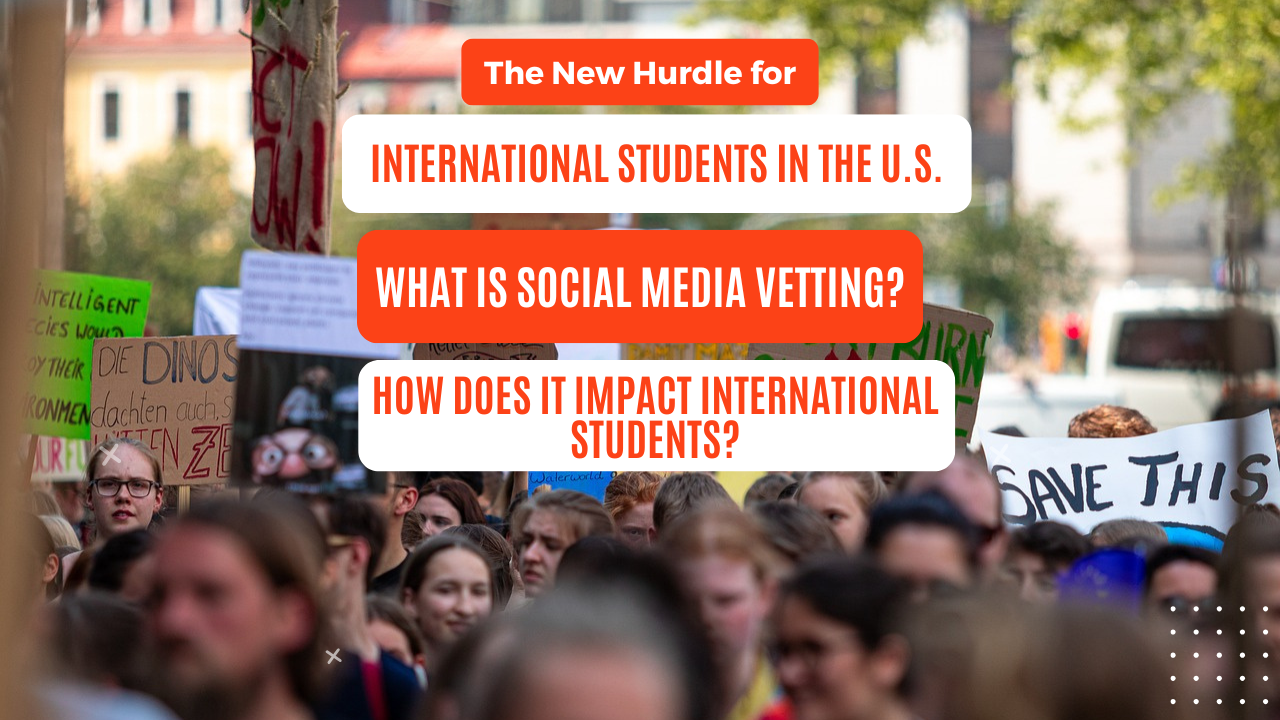In a significant policy shift, the U.S. government has intensified scrutiny of international student visa applicants by implementing a policy of social media vetting. As the State Department gets ready to increase social media screening throughout the application process, Secretary of State Marco Rubio announced a temporary halt of new student visa interviews.

📱 What Is Social Media Vetting?
Social media vetting entails the examination of visa applicants’ online activity—including posts, likes, shares, and affiliations—to assess their eligibility and potential risks before granting entry into the United States. Platforms such as Facebook, X (formerly Twitter), LinkedIn, and TikTok are among those being scrutinized .
Finding people who could be security risks or who have participated in actions seen to be against American interests is the goal of this approach. But the absence of precise rules about whether content is inappropriate has sparked worries about subjectivity and possible overreach.
🛂 Impact on International Students
Prospective overseas students are concerned as a result of the suspension of new student visa interviews due to the adoption of social media screening. Plans for the next academic periods may be affected by the pause in fresh interviews, but appointments that have already been set can still go forward.
Critics argue that this policy may deter international students from applying to U.S. institutions, potentially affecting university budgets that rely on tuition from foreign students. Data from Studyportals indicates a 50% drop in U.S. interest from January to April 2025, with projections of a 70% year-over-year decline if the trend continues .
⚖️ Legal and Ethical Concerns
The expansion of social media vetting raises significant legal and ethical questions. Privacy advocates express concern over the potential infringement on individuals’ rights and the possibility of discrimination based on political views or affiliations. The problem is made more difficult by the use of AI-powered tools to search social media for extremist tendencies, which might result in false positives or misunderstandings.
Additionally, the policy’s focus on students suspected of participating in pro-Palestinian protests has sparked debates about freedom of expression and academic freedom. University administrators caution that such actions jeopardize the country’s capacity to draw in top talent from across the world and retain its position as a leader in higher education.
🧠 What Can Students Do?
If you’re planning to study in the U.S., here are a few tips:
- Clean up your social media: Avoid controversial posts or inflammatory comments.
- Make accounts private: Consider limiting public visibility while applying.
- Stay informed: Keep up to date with embassy updates and university guidance.
- Prepare early: Given the delays, start your visa process as soon as possible.
✍️ Final Thoughts
The introduction of social media vetting is a game-changer for international students aiming to study in the United States. While intended to strengthen national security, this policy raises serious concerns about privacy, fairness, and accessibility.
As the debate continues, students are urged to be cautious and informed—because in 2025, what you post online could impact your future offline.

